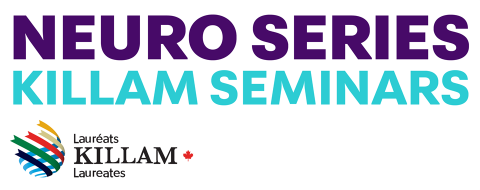Killam Seminar Series: Microfluidic tools for studying cell-cell interactions

Grâce à la générosité des fiducies Killam, Le Neuro convoque lors d’une série de séminaires des conférenciers d’exception dont les travaux passionnent ses chercheurs et ceux de l’Université McGill.
Pour participer en personne, inscrivez-vous ici
Pour visionner la diffusion sur Vimeo, cliquez sur le lien suivant
Iain Clark
Professeur adjoint, bio-ingénierie, UC Berkeley, États-Unis
Hôte: jo.stratton [at] mcgill.ca (Jo Anne Stratton)
Abstract: Central nervous system (CNS)-resident astrocytes and microglia interact to regulate pro-inflammatory programs that drive neurodegenerative diseases, but the pathways and molecules involved are largely unknown. Understanding the language of inflammation is a central question in the field of Neuroimmunology and may guide new therapeutic approaches for multiple sclerosis (MS) and other neurologic diseases. Interactions between CNS-resident cells are highly heterogeneous; astrocytes and microglia nourish and protect neurons, while inflammatory subsets drive demyelination and neurodegeneration in neurologic diseases. We recently developed two novel approaches to study astrocyte-microglia interactions at the single-cell level during inflammation: 1) an in vivo barcoding-based strategy that analyzes the transcriptomes and connections between individual cells, and 2) a droplet-based platform for genome-wide, unbiased CRISPR/Cas9 screening of genes that mediate cell crosstalk. In this seminar, I will discuss the development of these technologies and their application to study astrocyte-microglia signaling in experimental autoimmune encephalomyelitis (EAE), a preclinical mouse model of MS.






